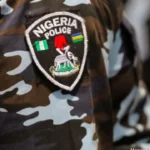My big story this week is that the Independent National Electoral Commission (INEC) has reversed itself, saying that there is no winner in the February 25 National Assembly elections in Doguwa and Tudun Wada Federal Constituency of Kano State. It would be recalled that INEC had earlier announced Hon. Alhassan Doguwa, incumbent Member representing the federal constituency and Majority Leader of the House of Representatives, who contested on the All Progressives Congress (APC) platform, as winner of the election. After reviewing the facts of the matter, INEC on Tuesday removed Doguwa’s name from the list of reps-elect, attributing the development to irregularities in the electoral exercise. The commission had said he was declared winner of the election by the Returning Officer under duress.
This followed the arrest of Doguwa in connection with the violence which broke out in the federal constituency during the collation of the election results, leading to the death of two persons when a secretariat of the New Nigeria Peoples Party (NNPP) was set ablaze allegedly on the order of the embattled lawmaker.
The police arraigned the ranking lawmaker at a Magistrate’s Court in Kano, which remanded him in prison. Nigerians were shocked when Doguwa was granted a N500 million bail and released from detention in time to apparently repeat such acts in the elections that were scheduled to be held tomorrow but subsequently rescheduled for next Saturday. How could someone charged with murder in an election be released just days later and in time to repeat such action for another election. When the story of Nigeria’s democracy is told, the judiciary would occupy one of the most despicable roles.
Professor Ibrahim Adamu Yakasai, the Returning Officer for the election, in a letter to INEC written February 27, 2023 had explained clearly that the results he declared in favour of Ado Doguwa were false; read under duress and fear for his life. He had the courage to admit this and correct the error leading to the decision of INEC to cancel the said results and announce new elections would be organised for the constituency. My fear is that Doguwa would go to court and a judge would declare that the law does not say results announced under duress are invalid. We have seen that before. This time, I hope Nigerians would not accept such an outcome should it occur.
Nigeria records N1.2tr surplus as foreign trade hits N52.38tr in 2022
The lowest voters’ turnout in Nigeria’s election history: What happened?
Let us recall. To convince the presidential election petition tribunal sitting in Abuja to nullify the April 16 general election that brought President Goodluck Jonathan into power, the Congress for Progressive Change, CPC, presented evidence that its supervisory agent in Cross River State, Mr Bassey Okon, was compelled to sign a distorted final result of the presidential poll in the state, at gunpoint (Vanguard, 15 September 2011) and it was dismissed. Another example was that of Professor Ibeabuchi who before reeling out figures at the district collation centre in the Independent Electoral Commission (INEC) office in Orlu, Mr Ibeabuchi, a professor, said he was being held “under duress” to announce the results:
“My name is Ibeabuchi Izuchukwu Innocent, a professor at the Federal University of Technology Owerri (FUTO), the Returning Officer for Imo West (Orlu) senatorial zone…. “My area commander; my P.Os; the party agents here present; members of the press; ladies and gentlemen; I have been held hostage here for days so I’m trying to ease off and take my life home back to my children and for the sake of that I am calling these results under duress,” the Returning Officer said (Premium Times, 25 February 2019).
There was also the case of the Returning Officer of Orumba North LGA, Dr Michael Otu, who stunned stakeholders at the Anambra State governorship election collation centre on Sunday when he denounced the result he signed. He accused the electoral officer that was supposed to work with him of collaborating with some people to scuttle the election results in the area. He stated this while delivering his report to the State Returning Officer, Prof. Florence Obi, at the ongoing election result collation. He said there was no election in the entire local government area. He said a crisis fomented by policemen led to his signing the result under duress: “I signed a report I didn’t believe in. I signed it under duress. I was teargased…. I could not even go out to ease myself. They were monitoring me up and down. At a point, I saw that my life was in danger, so I had to sign the results they prepared (PM News, 7th November 2021).
In most of such cases of signing results under duress, the judiciary has chosen to play dumb by ruling that the law says the results read by the returning officers stand and have thereby sided with forces that were raping basic democratic precepts. There is however a strong sentiment in Nigeria today that there must be accountability and sanctions for people who violate the principles of free and fair elections and seek to hide under legal technicalities.
Such stories have tended to create the basis to completely delegitimise Nigerian elections because they are so scandalous and anti-democratic that they become what Nigerians remember about the elections. When one looks at the February 25 elections in Kano, for example, the trending story is about Ado Doguwa, the murders and declaration of results under duress. The reality of the Kano elections was that it went very well in over 90 per cent of the polling units; there was neither violence nor fraud. Normal elections are not a great story so all that recedes to the back of people’s memories and they remember the violence.
At the national level, what we remember is that failure in posting presidential elections on the IReV portal. The fact that BVAS machines were successfully used to accredit voters in most polling units has disappeared as the story of the elections in spite of its importance in providing legitimacy to the process. YIAGA Africa, which did a parallel vote tabulation count, said in its report that the figures for Imo and Rivers states appeared questionable and did not tally with their estimates and projections. This means the numbers for the 34 other states and FCT were in their findings fairly accurate. Nonetheless, for many people, the whole election was a sham and should be cancelled. My concern is that when we carry out fairly good elections, we do not see our success as a few trees block our sight of the forest. If the judiciary does its work well and we begin to see accountability for actors who brazenly violate electoral rules and procedures, it would reassure Nigerians and place them on the path of beginning to see relative success when it happens.

 Join Daily Trust WhatsApp Community For Quick Access To News and Happenings Around You.
Join Daily Trust WhatsApp Community For Quick Access To News and Happenings Around You.


